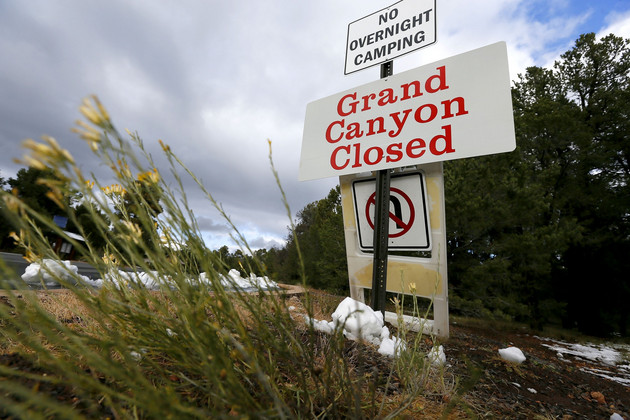
By Gregory Scruggs
SEATTLE (Thomson Reuters Foundation) – Before March, avid mountain biker Levi Rose never used to see a full parking lot at Beacon Hill, a popular trail destination in the northwestern U.S. state of Washington.
But with state parks and gyms closed after Washington Governor Jay Inslee issued a stay-at-home order to stem the novel coronavirus, cooped-up residents began looking for exercise options closer to home.
Rose suddenly found himself sharing the trailhead with many new faces precisely at a time when the public was being asked to maintain physical distance.
“Parking lots were filling up, so I changed my behavior to seek out non-peak hours,” Rose, a geographic information specialist, told the Thomson Reuters Foundation by phone. “At dinnertime, places I liked to bike (through) were less crowded.”
Outdoor recreation features heavily in the first phases of reopening plans for most U.S. states, even as public officials continue to discourage large gatherings and many national parks remain closed.
With summer approaching and diversions like music festivals, cinemas and theme parks still largely off-limits, conservation groups are lobbying Congress for dedicated public lands funding, ahead of the coming surge of crowds to parks around the country.
“Everyone is coping with the crisis by going outside,” said Tom Cors, director of government relations for lands at The Nature Conservancy, an environmental charity.
The Nature Conservancy joined more than 850 organizations, ranging from outdoor clubs to tourism boards, in a letter last month urging Congress to pass the Great American Outdoors Act.
The bill was first introduced in March, just as the new coronavirus pandemic began occupying lawmakers’ attention.
Congress would spend up to $9.5 billion over five years on the National Park System, which comprises about 4% of total land in the United States, and dedicate $900 million annually to the recently reauthorized Land and Water Conservation Fund.
“We know that Americans are getting back to the basics with their families and going out more into their public lands, which provide excellent social-distancing platforms for people’s activities,” Cors said in a phone interview.
“The Great American Outdoors Act supports all of these goals through maintenance and increased access by providing more land for conservation and recreation.”
‘MORE PRESSURE ON PARKS’
Rose, the mountain biker in Spokane, volunteers with a mountain bike club to build new trails in a county that is 92.5% private land, according to data tabulated by Montana-based research firm Headwaters Economics.
“When you don’t have that much public space and you restrict it even more, what we end up seeing is more pressure on city and county parks,” he said.
Passing the Great American Outdoors Act could help ease that pressure, say the bill’s supporters.
The National Park Service estimated an $11.9 billion deferred maintenance backlog at the end of the 2018 fiscal year.
Chipping away at that list of potholed roads, crumbling bridges and aging visitor centers would help make less popular parks more attractive at a time when the public has been urged to spread out, say park advocates.
“We’re trying to disperse visitation across the country to more close-to-home places,” said Will Shafroth, president and CEO of the National Park Foundation, the parks’ official charity.
“And even within parks, we’re trying to disperse visitation so we’re not creating large crowds in small places.”
Just 10 national parks – including the Grand Canyon in Arizona and the Great Smoky Mountains, straddling North Carolina and Tennessee – account for 15% of annual visitors, according to park service figures.
“The enactment of (the Act) would be historic and would allow the Department of the Interior to better care for the lands it manages,” National Park Service spokeswoman Kathy Kupper said in emailed comments.
SHORT-TERM SOLUTION
The other beneficiary of the bill’s passing would be the Land and Water Conservation Fund (LWCF), which was permanently reauthorized in February 2019.
Using about $900 million a year from offshore oil revenues, the program allows for the purchase of private land for parks and recreation.
Rose’s mountain bike club has requested $500,000 from the fund to secure 160 acres (65 hectares) of private land whose future development would threaten the Beacon Hill trails.
“The COVID-19 pandemic has shown how important close-to-home public green spaces like Beacon Hill are, and without LWCF it would be very difficult to purchase these important green spaces,” he said.
Last month Senate Majority Leader Mitch McConnell announced that the Senate would vote on the Great American Outdoors Act in June.
“Our mountain towns were hit hard by COVID-19. The ski season ended early, restaurants closed and hotels emptied,” said act co-sponsor Republican Colorado Senator Cory Gardner in a statement.
“Now is the time to pass this bill that will provide billions of dollars in funding for new jobs across Colorado and the country while protecting our public lands.”
Jill Simmons, head of the Washington Trails Association, a nonprofit, said that local outdoor groups support permanent funding for the LWCF, but cautions that the National Park System needs more than five years of funding to solve the long-term maintenance needs of U.S. public lands.
“The Great American Outdoors Act is a good first step. Just like our road system, our trail system is infrastructure that needs ongoing support,” she said.
“When you’re talking about an infrastructure system that can meet demand for generations, (the Act) is a boost and a start, but not the end-all, be-all.”
(Reporting by Gregory Scruggs, Editing by Jumana Farouky and Zoe Tabary. Please credit the Thomson Reuters Foundation, the charitable arm of Thomson Reuters, that covers the lives of people around the world who struggle to live freely or fairly. Visit http://news.trust.org)








